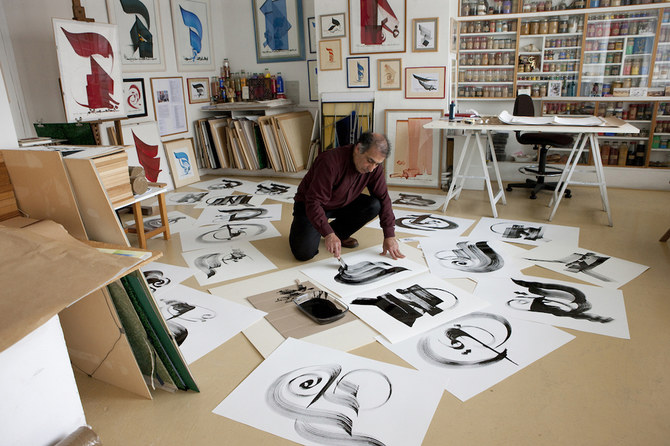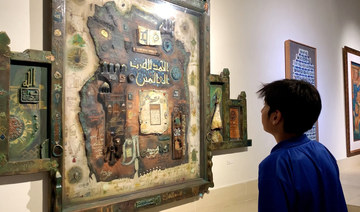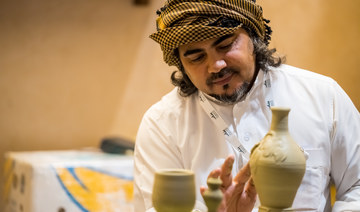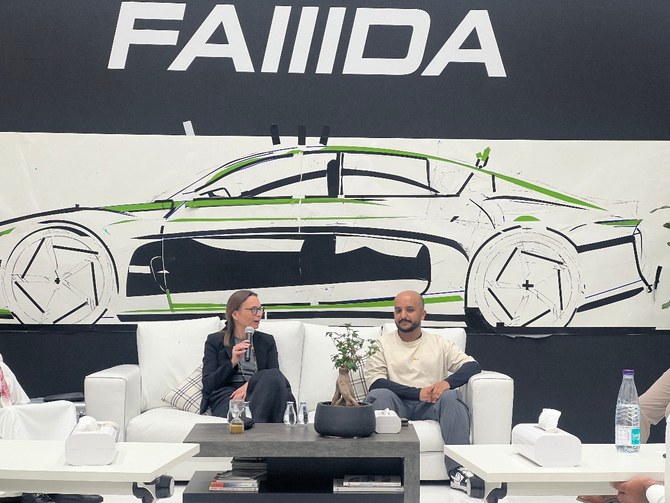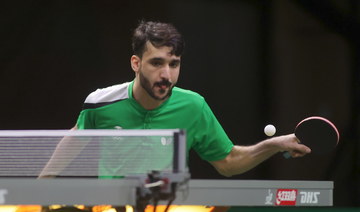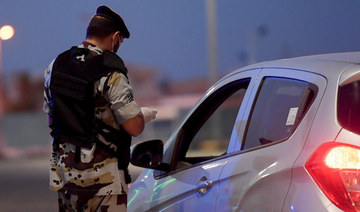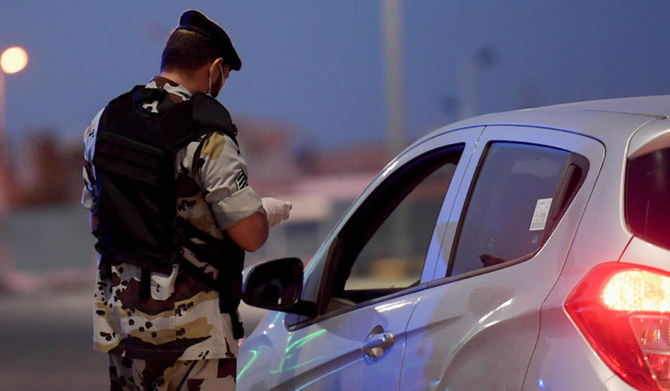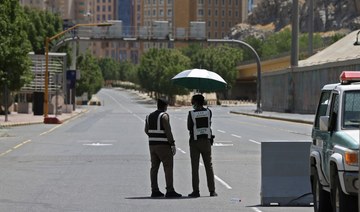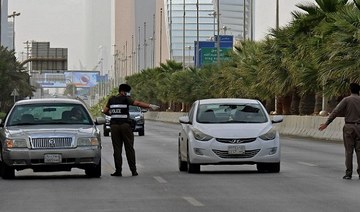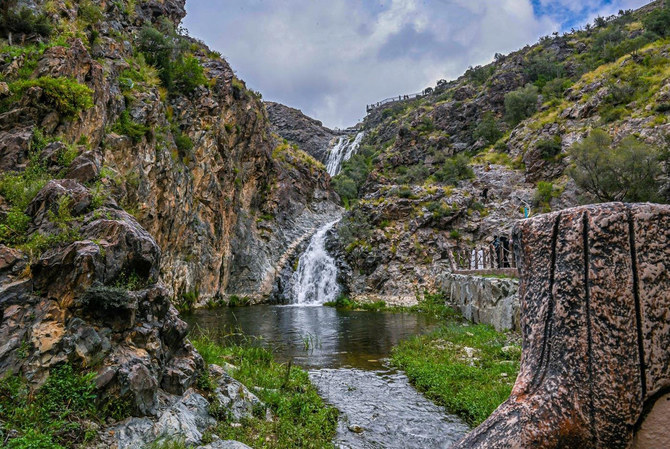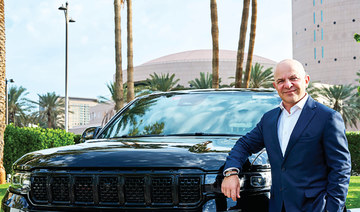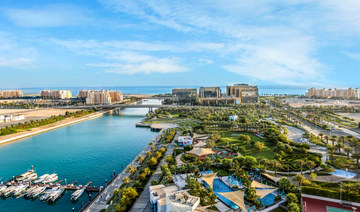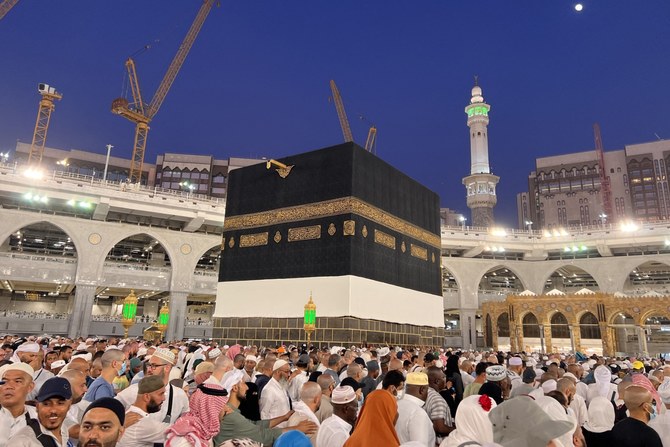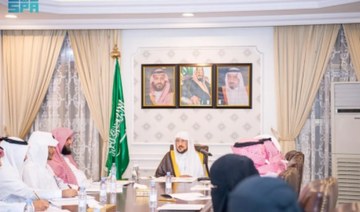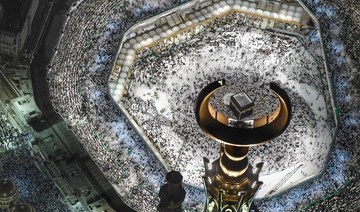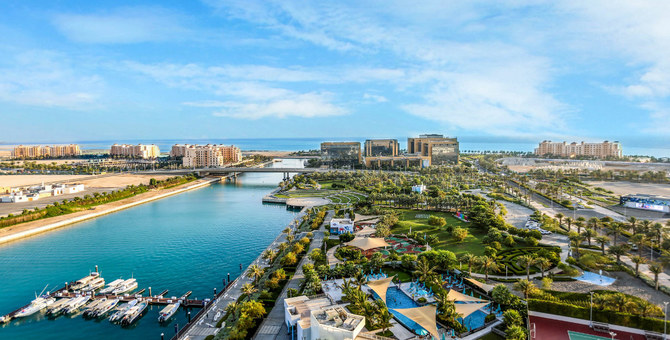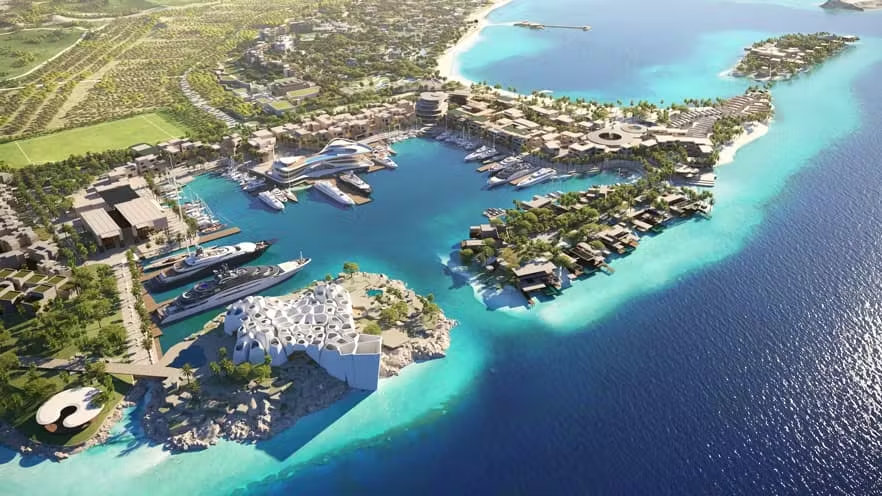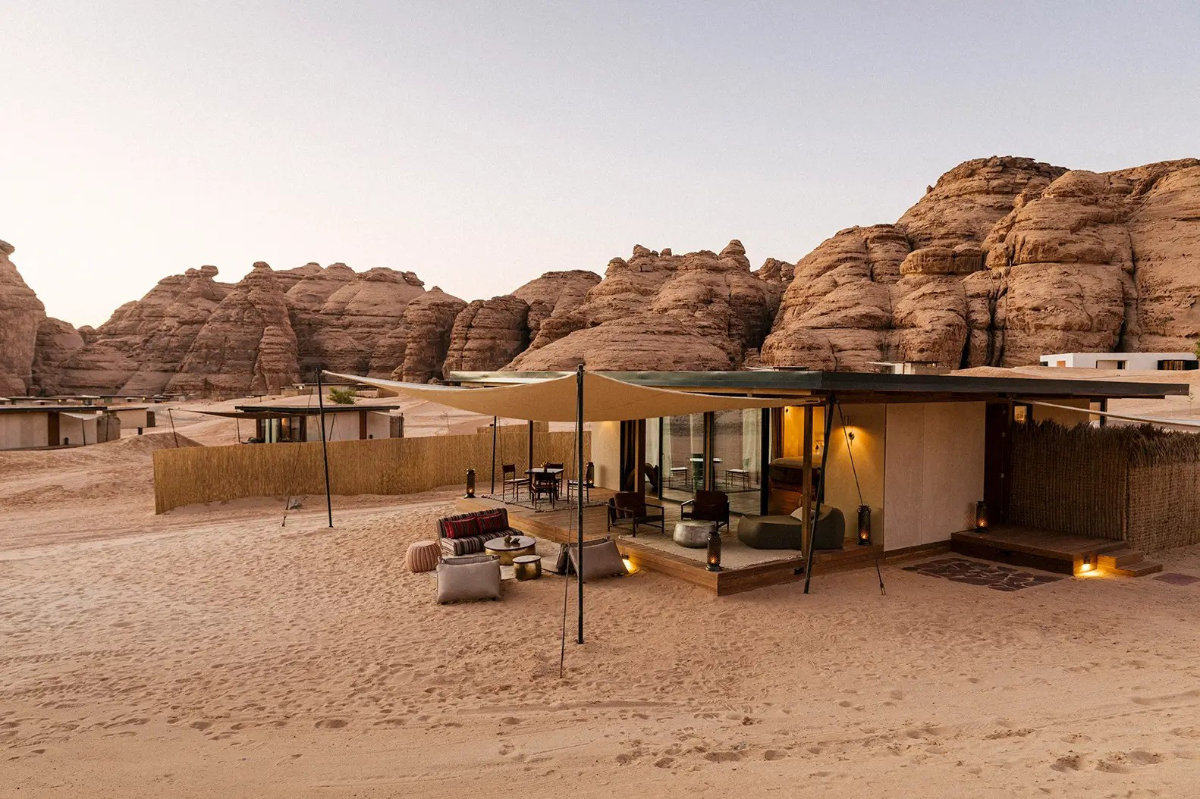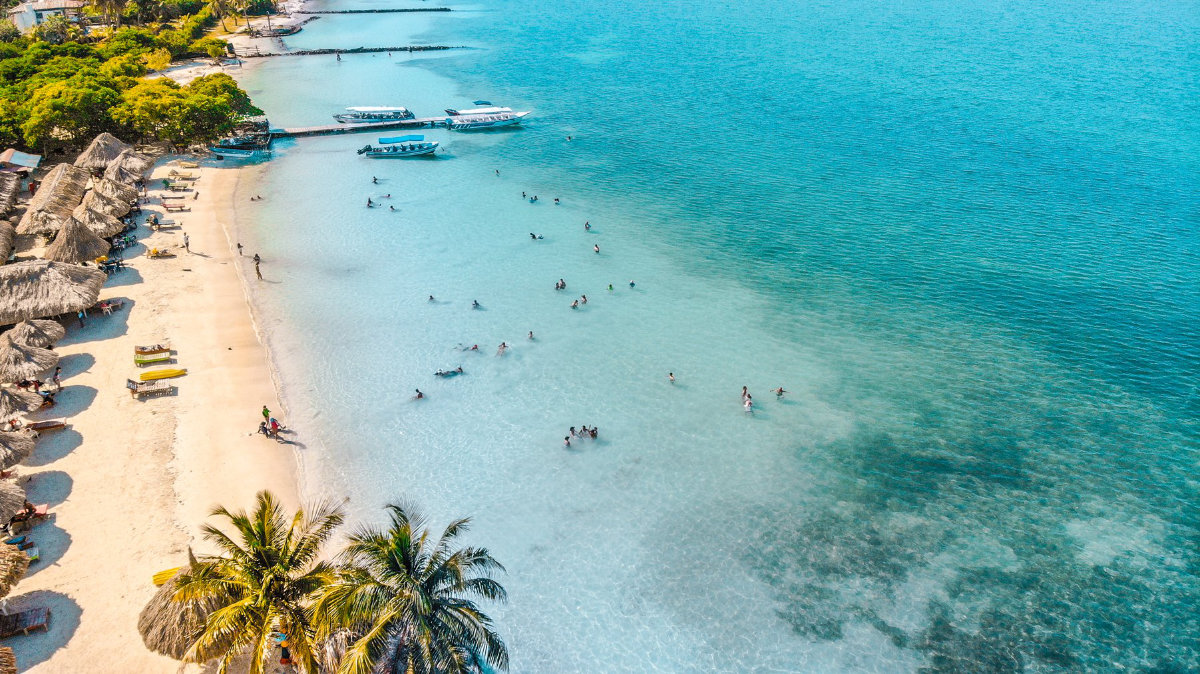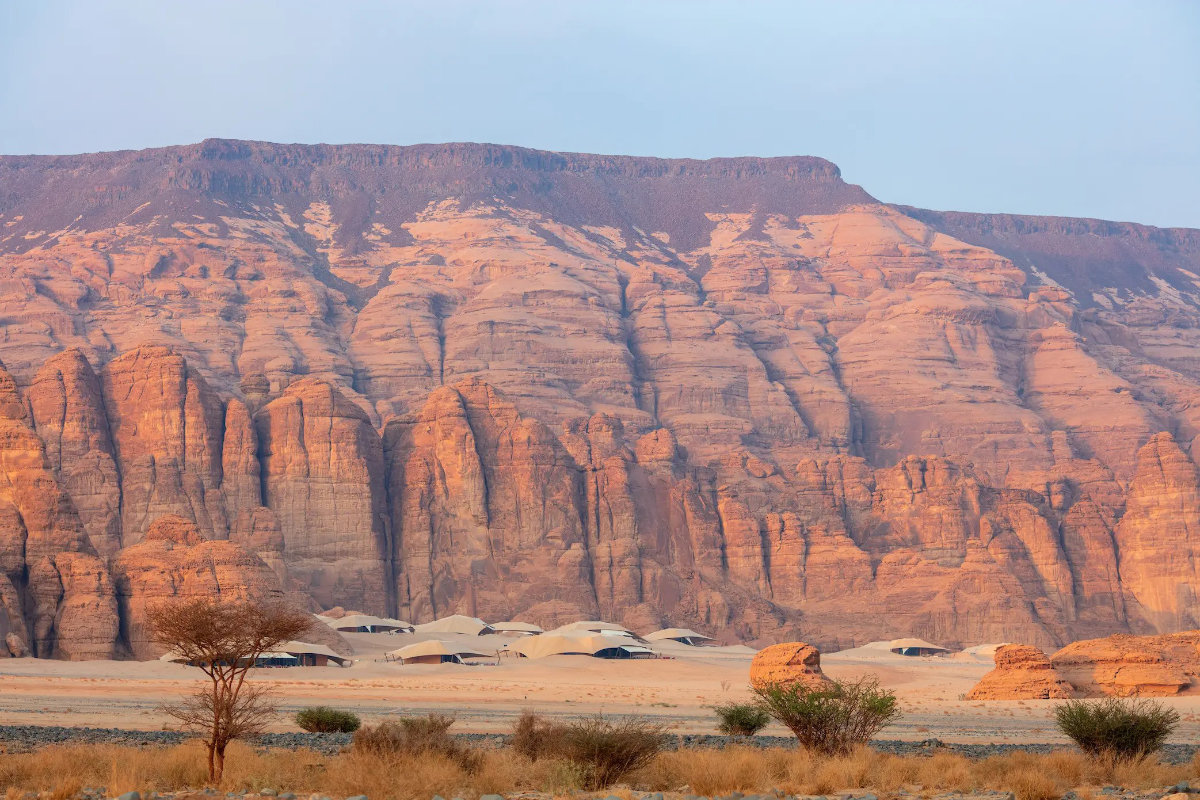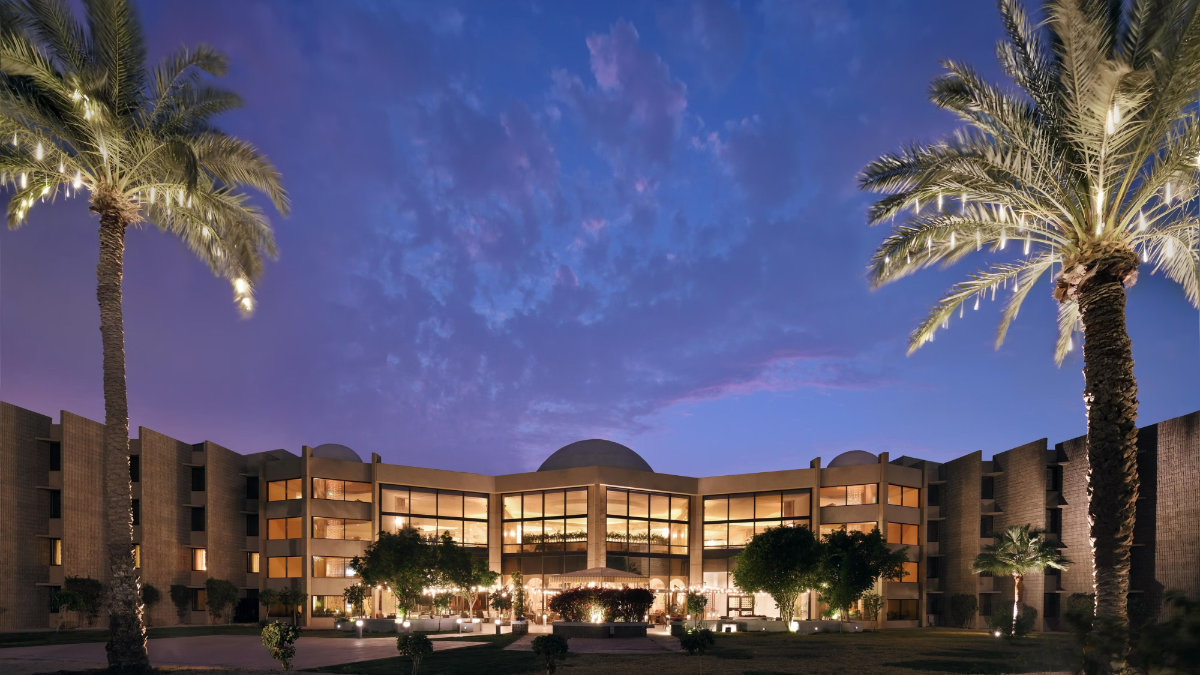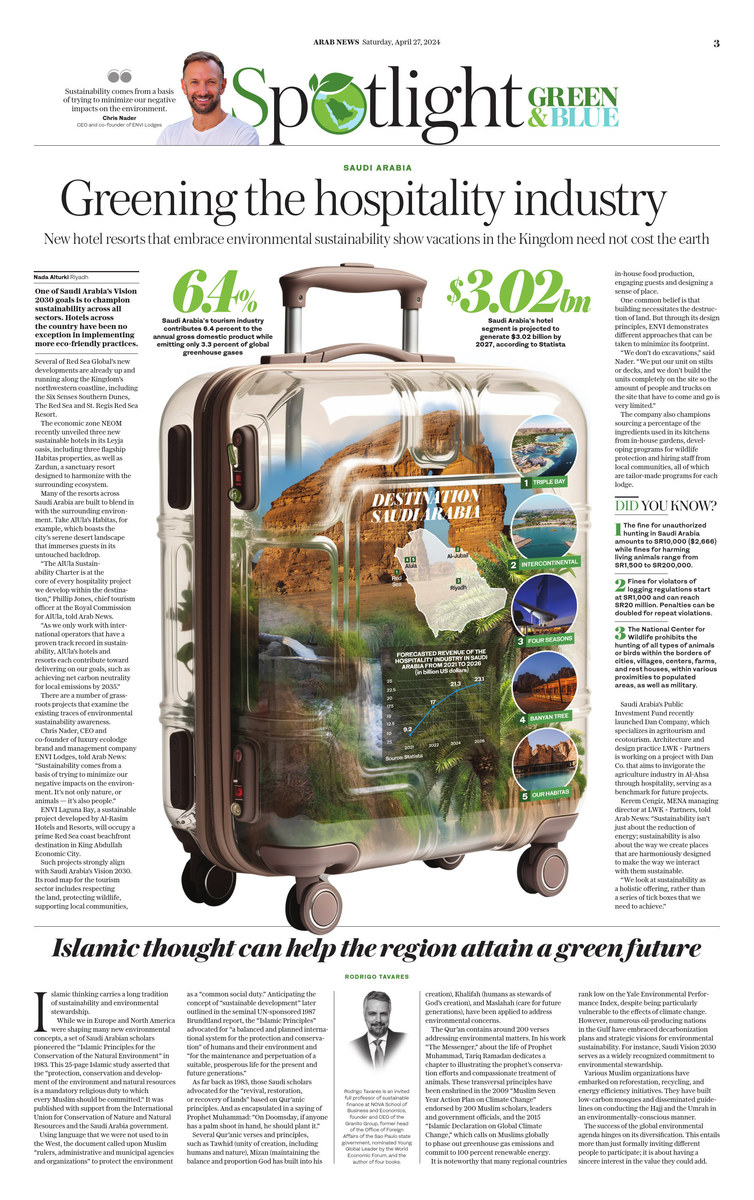RIYADH: A captivating calligraphy exhibition by renowned French-Iraqi artist Hassan Massoudy is being hosted by the Hewar Art Gallery in Riyadh.
“Calligraphies de Lumiere” displays Massoudy’s unique fusion of cultures and expression on both canvas and paper.
The 80-year-old artist, whose journey from the streets of Baghdad to the studios of Paris has woven a tapestry of inspiration, told Arab News: “When I was a child, I loved to draw. On the other hand, my mother often took me to (visit) my theologian and calligrapher uncle. I watched him trace the letters with slowness and diligence.”
Driven by a dream to pursue art, Massoudy embarked on a transformative journey to France in 1969. Training at the School of Fine Arts in Paris, he immersed himself in the techniques of painting, drawing, mosaic, fresco, art history and figurative painting.
He said: “At the same time, to pay for my studies, I worked as a calligrapher as well as at an Algerian magazine. Little by little, I began to introduce letters into the colorful characters that I painted.”
He added: “During 1975 to 1980, I integrated more and more calligraphy, until the figurative painting totally disappeared, being replaced only by letters, first compositions then the key word of the sentence expanded to become the main ‘character’.”
Massoudy was influenced by painters like Matisse, Picasso and Soulage but, he said, “another civilization also brought me a lot, the Far East with Chinese and Japanese calligraphies. It allowed me to free up space, to make free and wide gestures, by enlarging my words to the size of the sheet of paper or the canvas.”
This added to the foundations of his original culture and Massoudy’s calligraphic compositions transcended linguistic boundaries, embodying a timeless essence of humanism and poetry.
The message his creations convey is very important to him. He said: “These texts come from both Eastern and Western cultures, as well as from the past and the present. By these poetic or humanist sentences, we realize that men can join altogether with their ideas and their sensitivity.”
Each canvas in the exhibition is an imprint of Massoudy’s soul, inviting visitors to embark on a journey of introspection and enlightenment.
He said: “The canvas whose calligraphic phrase is from the Indian poet Kabir, ‘O friend, don’t go to the flower garden, the flower garden is within you,’ has a composition similar to a large seed encompassing an interior garden, the promise of rebirth. As for Ta Kuan’s quote, ‘this day will never be repeated again, each moment is a priceless jewel,’ it reassures me and makes me aware of the beauty of life. Ibn Qalakis urges us to evolve and not remain in a static state, ‘travel if you like for certain value. By traveling the skies, the crescent becomes a full moon’.”
He added that visitors to the exhibition would “come into contact with the colors of the canvas, the geometry hidden behind the shape of the words, and the meaning of the text.”
During his apprenticeship with various calligraphers in Baghdad he learnt their favorite styles or little tricks specific to each one when creating a particular letter. In learning fine arts, he said he was privileged to have rubbed shoulders with both calligraphy and painting.
He said: “I have tried to merge them, to mix Baghdad with Paris or vice versa. This has given new impetus to my calligraphy. I have knowledge of classic styles of Arabic calligraphy with its strict codes, but what I learned at the School of Fine Arts of Paris I tried to apply to the letters, giving them all their freedom and not imprisoning them in rules.”
Wandering through the exhibition, one quickly becomes conversant with the rhythm of Massoudy’s brushstrokes, each one bearing emotion and grace. He says dance has influenced him a great deal.
“I had the pleasure of working live at shows with dancers, especially with Carolyn Carlson,” he said. “When I worked in collaboration with dancers, I had the impression of being the choreographer of my letters. This brought a lot to free my gesture, lengthen it, bend it, raise it, then make it dance on the sheet with energy.”
One of the key visitors to the exhibition has been Ludovic Pouille, the French ambassador to Saudi Arabia.
He told Arab News: “The minute I heard that French-Iraqi artist Hassan Massoudy was displaying his work at the Hewar Gallery, I knew I wouldn’t miss it for the world. The ‘Calligraphies de Lumiere’ is truly an ode to Arabic poetry and colors. Not to mention that I am a huge fan of art in general. Art is a universal language that brings cultures and people together and opens our minds to differences and new perspectives.”
Pouille says the exhibition serves as a catalyst for cultural exchange and understanding between France and Saudi Arabia, inviting visitors from both nations to explore and connect with unfamiliar cultural landscapes, fostering mutual respect and curiosity.
He said: “Saudis have been exposed to French art for a long time and they certainly express their appreciation and love of my country and its culture. Today, with the great transformation Saudi Arabia is witnessing, the French are eager to discover it themselves. That is what we have seen with the increasing number of French tourists.”
The French Embassy in Riyadh actively engages with local communities to promote cross-cultural dialogue. Initiatives include the ongoing Month of the Francophonie, where collaborative events across Riyadh, Jeddah, Alkhobar and AlUla with Francophone embassies, schools, associations and Saudi partners are taking place.
Pouille told Arab News: “The superb exhibition at L’Art Pur Gallery ‘Woven Portraits,’ by French-Swiss artist Catherine Gfeller and Saudi artist Daniah Al-Saleh, is a great example of artistic cooperation. It is an exhibition dedicated to celebrating the strength, resilience and creativity of women in Riyadh, set against the backdrop of the city’s dynamic social and cultural landscape.”
He added: “The French Embassy intends to present an exhibition of digital art by French artists Jeanne Morel and Paul Marlier in April at the Hayy Jameel Cultural Center. We also plan to strengthen cultural exchanges between the two countries by organizing a new artistic residency next autumn. I believe these programs are a great way for artists to create a long-term bond.”
Future initiatives will also promote artistic collaboration and cultural exchange between France and the Kingdom.
The ambassador said: “Our plans are continuous. The first official visit of the Minister of Culture Rachida Dati to Saudi Arabia (in March), at the invitation of her counterpart Prince Badr bin Abdullah bin Farhan, is tangible proof of the constant French-Saudi cooperation at high levels.”
‘Calligraphies de Lumiere’ runs until April 18.





